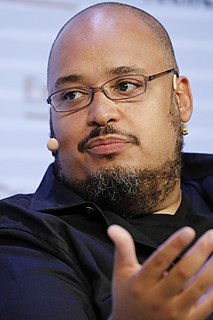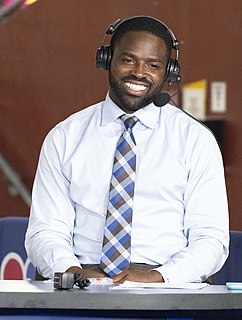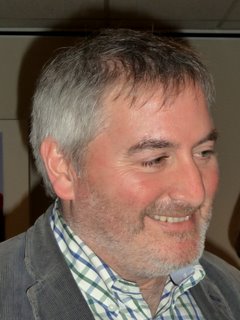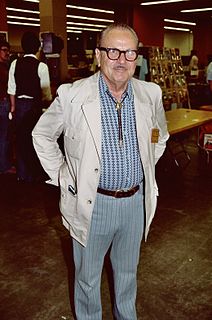A Quote by Johann Wolfgang von Goethe
People should talk less and draw more. Personally, I would like to renounce speech altogether and, like organic nature, communicate everything I have to say visually.
Quote Topics
Related Quotes
A film, since it is primarily a visual medium, should really be like a silent film. You should be able to watch something and understand what was going on and use voice when you need to communicate something you can't necessarily communicate visually. The book is the opposite. The book is an inner monologue which is beautiful.
Since becoming a mother, I'd say it's more so affected my general outlook on things. I'm less worried about everything. Less scared to make those numbers that people think are standard or less scared to create something that maybe I don't think people are going to like, because it's all about if I like it. I need to be happy.
People are hypocritical. That's just human nature. I embrace my hypocrisy. Once you come to grips with who you are and what's in you, and you aren't ashamed of it...but people are made to feel ashamed. You start thinking, like, "Is this human nature? That I like certain things, but I don't like certain aspects of certain things? Should I just shun it altogether?"
Sri Yukteswar used to poke gentle fun at the commonly inadequate conceptions of renunciation."A beggar cannot renounce wealth," Master would say. "If a man laments: 'My business has failed; my wife has left me; I will renounce all and enter a monastery,' to what worldly sacrifice is he referring? He did not renounce wealth and love; they renounced him!"Saints like Gandhi, on the other hand, have made not only tangible material sacrifices, but also the more difficult renunciation of selfish motive and private goal, merging their inmost being in the stream of humanity as a whole.
If you want to write about a person who isn't nice, people say, "This is a bad book. It's about somebody I couldn't stand." But that's not the point. You don't have to like a character to like a book. Most of the time, people would misjudge and say, "I didn't like the book." No, you didn't like the character. That doesn't make it any less interesting of a book. In fact, to me, it makes it more interesting.
My father would sit and design furniture and cabinets - he was a carpenter and cabinet maker - and I would ask for my own piece of paper and pencil. And when I would say, 'What should I draw?' he would push a cartoon under my nose and say, 'Here, draw this.' So the cartoon became a kind of focus of attention.





































